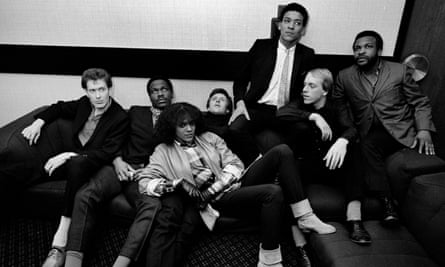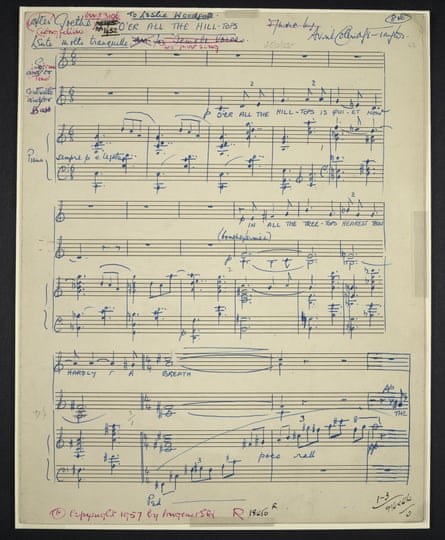Lanre Bakare, Young researchers need greater access to Britain’s rich archives, says curator, The Guardian, 25 April 2024
Aleema Gray used British Library’s collection to assemble Beyond the Bassline exhibition about Black British music.

Young cultural researchers need greater access to the UK’s rich archival resources so untold stories can be brought to light, according to the curator of an exhibition that documents five centuries of Black British music, from the Tudor court to grime.
Dr Aleema Gray has assembled Beyond the Bassline, an expansive tour through the past 500 years of Black British musical history, which is being hosted by the British Library – the exhibition pulls from its collection – and seeks to redefine the limits of what we consider Black British music.
“If this project has taught me anything it is about the need to educate and to introduce learning around how to preserve and protect archival materials,” said Gray. “On a community level there needs to be more of an awareness about preservation and archiving our stories.”
Gray spent about a year researching and piecing together the exhibition, which opens on Friday 26 April.
It includes about 300 objects – such as part of the sound system owned by the dub pioneer King Tubby, the two-tone singer Pauline Black’s stage outfit and Dennis Bovell’s guitar – and starts with a section about the migration of Black people to Britain, featuring a map made by the Tudor polymath John Dee.
It then moves to the court of Henry VIII where John Blanke – a black trumpeter – played for the monarch; before transferring to the clubs of Soho in the jazz age and the evolution of British reggae, lovers rock and two-tone and modern genres such as grime and drum’n’bass.

Felix Taylor and Melo Zed, from the collective Touching Bass, have composed a soundscape which plays throughout, while between the different eras that Beyond the Bassline explores there are broken up “interruption spaces”, which include a video piece from the Butetown dance collective Jukebox in Cardiff.
Gray said while more young people were getting into archiving projects, more needed to be done to ensure they understood that collections were easily accessible.
“I hope there will be more access around heritage institutions like the British Library where young people can come to these places and understand that the archive isn’t just YouTube,” she said.
“The British Library has a lot of collections documenting Black culture – I could spend years in the basement or the reading rooms – but people aren’t coming in unless they’re coming in to research or write.”
Gray said Black British musical culture had grown over the past 500 years, influencing everything from pop music to fashion and politics. “Whether it is Bob Marley or the popularity of Clarks shoes, there’s a history and a heritage around the world,” she said. “We’ve inherited these things.”

She also wanted to show that contemporary issues such as lack of funding and copyright cases have historic roots for Black British musicians. “When you go into the first section and you read about John Blanke petitioning for more money, these are things we’re still talking about now,” she said.
“When you go to Samuel Coleridge-Taylor and you look at PRS, copyright and licensing – the past and the present is cyclical – there’s not this linear approach to history.”
Beyond the Bassline is the latest exhibition or project to focus on Black British music.
V&A East, in the Queen Elizabeth Olympic Park, announced that its inaugural exhibition will be a survey of Black British music in the 20th century, titled The Music Is Black: A British Story, while the BBC recently concluded a 12-part series, called Black Music in Europe: A Hidden History and presented by Clark Peters, which charted the history of black music across Europe.

